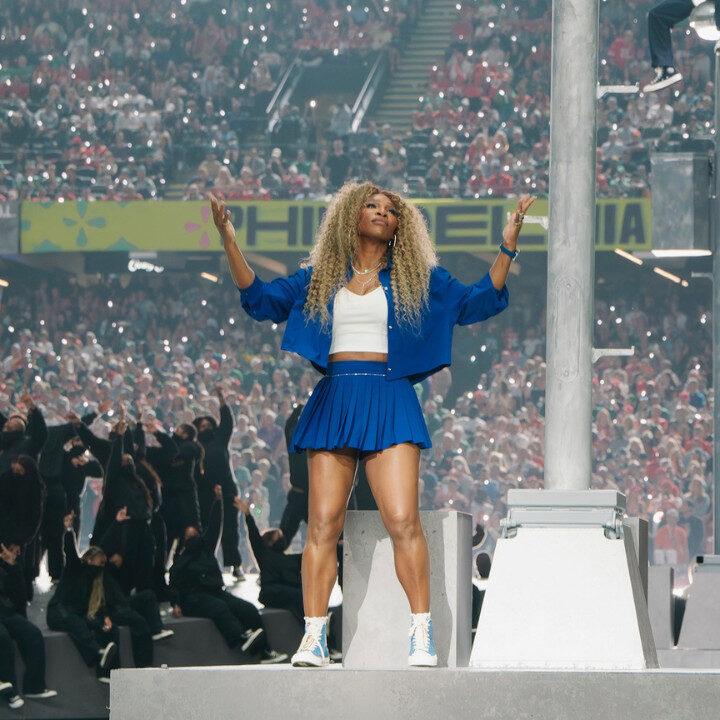When Serena Williams, a tennis legend and symbol of perseverance, steps away from the court and into the spotlight as a spokesperson for Ozempic-like weight-loss drugs, it represents a cultural milestone layered with significance far beyond the headlines. The 23-time Grand Slam champion’s candid revelation of losing 31 pounds postpartum using GLP-1 medications, coupled with her new ambassador role for telehealth company Ro (which counts her husband as an investor and board member), has sparked a whirlwind conversation about body, health, capitalism, and societal ideals.
Read More: American Eagle x Sydney Sweeney: How A Denim Ad Turned Into A Cultural Debate

The Surface: Breaking The Stigma
Williams’ story taps into a familiar narrative for many – struggling with post-pregnancy weight despite tireless effort and disciplined fitness. Speaking to several outlets about her weight-loss journey, she shared that she had taken countless steps and undergone rigorous training, yet her weight plateaued until GLP-1 injections (in her case, Zepbound) helped her overcome the hurdle.
Her transparency, one might argue, challenges some of the stigma surrounding these drugs in a landscape rife with judgment about ‘shortcuts’ and bodily discipline. For a figure synonymous with strength and hard work to openly share this part of her journey feels like a breath of fresh air in a world that often equates thinness with virtue and worth. But this narrative is not that simple.

The Deeper Play: Between Empowerment And Commercialisation
Williams’ endorsement suddenly entangles personal choice with corporate interests – with minimal transparency. Ro, her partner in this venture, stands to significantly profit from the celebrity validation that comes with her stature. The company’s direct-to-consumer telehealth model sidesteps traditional medical scrutiny, selling an image of easy accessibility for a serious prescription medication meant for obesity treatment.
This commodification of weight loss sets off several alarms about medical ethics, potential side effects being glossed over, and the amplified risk of turning nuanced health decisions into trendy consumer choices. Simultaneously, Williams becomes a mythic symbol in a broader societal fixation on bodies – how they must look, how they must perform, and how they must be ‘fixed.’
Her involvement raises complicated questions: does this signal empowerment in reclaiming control over one’s body on personal terms? Or does it highlight how even icons must navigate a world where bodily appearance often trumps achievements – inviting scrutiny and pressure that reduce their bodies to public currency against decades of hard-fought greatness?

Why Serena’s Voice Matters
It’s essential to understand why Serena Williams herself endorsing GLP-1 drugs is such a seismic cultural event. Here is a woman whose athleticism and determination have transformed what strength and excellence look like at the highest level. Her body has been scrutinised in ways no average person experiences – every victory, every outfit, every pound weighed against impossible standards.
For Williams to publicly share her use of GLP-1 medications to manage postpartum weight goes beyond health: it enters an already nuanced conversation with the authority of someone who embodies grit and authenticity, not superficiality. More than a mere celebrity, Williams’ openness carries a unique weight – she is trusted, respected, and her story resonates across lines of race, gender, and sport.

The Reality: Medical Necessity And Personal Choice
It’s critical to remember that GLP-1 medications like Ozempic and its relatives were originally licensed and designed for specific medical uses – primarily managing type 2 diabetes and, in cases of obesity or weight-related health conditions, for weight management. For many individuals, these drugs are not a luxury or cosmetic choice but a health necessity. People living with these chronic conditions rely on GLP-1s to regulate blood sugar levels and mitigate serious health risks.
That said, adults without these medical needs sometimes choose to use GLP-1s for weight loss or aesthetic reasons – a personal prerogative in a society that prizes bodily autonomy. Yet the conversation becomes complicated when advertising and celebrity endorsements like Williams’ lack transparency about the medical context and risks, unintentionally blurring the lines between necessity and lifestyle choice. What the ad doesn’t fully convey are the deeper layers: the serious side effects, the cost, the ethical questions about accessibility, and the societal implications of normalising such medications without due diligence.

Cultural Ripples: The Unspoken Costs
Williams’ story is also a prism reflecting the pressures endured primarily by women and people of colour, especially in elite public arenas. Her advertised embrace of these drugs does legitimise a treatment that many quietly seek, yet it also risks perpetuating harmful narratives that weight loss is not only desirable but urgent. Given the drug’s side effects and the controversy around its off-label usage, it’s worth questioning whether promoting such medications through celebrity endorsements might inadvertently deepen insecurities and widen health disparities.
At its core, Williams’ endorsement ignites dialogue about society’s conflicted relationship with health, beauty, and pharmaceuticals that promise quick fixes. It’s a reminder that behind every headline lies complex intersections of identity, corporate power, and cultural expectation – territories familiar to the champion who has conquered both tennis courts and public scrutiny alike.
In the end, Serena Williams’ journey with Ozempic-like drugs and the culture surrounding them – when intentionally made public and tied to capitalist interests – goes beyond a personal health story. It’s a mirror held up to a world wrestling with how we measure bodies and wellness, and the costs we’re willing to bear – physically, emotionally, and culturally – in the chase for both.
Born in Korea and raised in Hong Kong, Min Ji has combined her degree in anthropology and creative writing with her passion for going on unsolicited tangents as an editor at Friday Club. In between watching an endless amount of movies, she enjoys trying new cocktails and pastas while occasionally snapping a few pictures.



